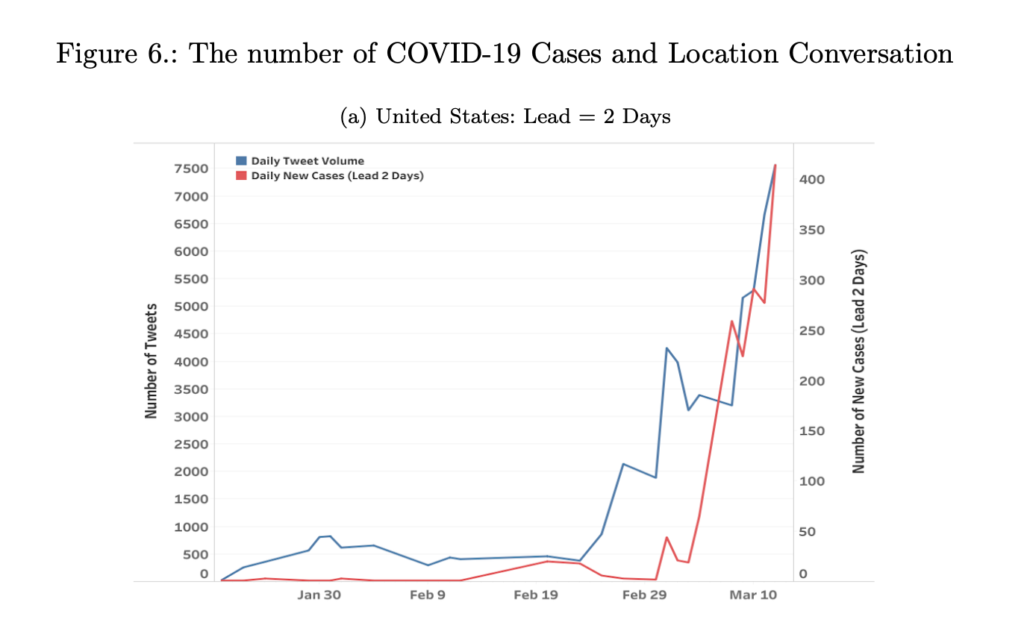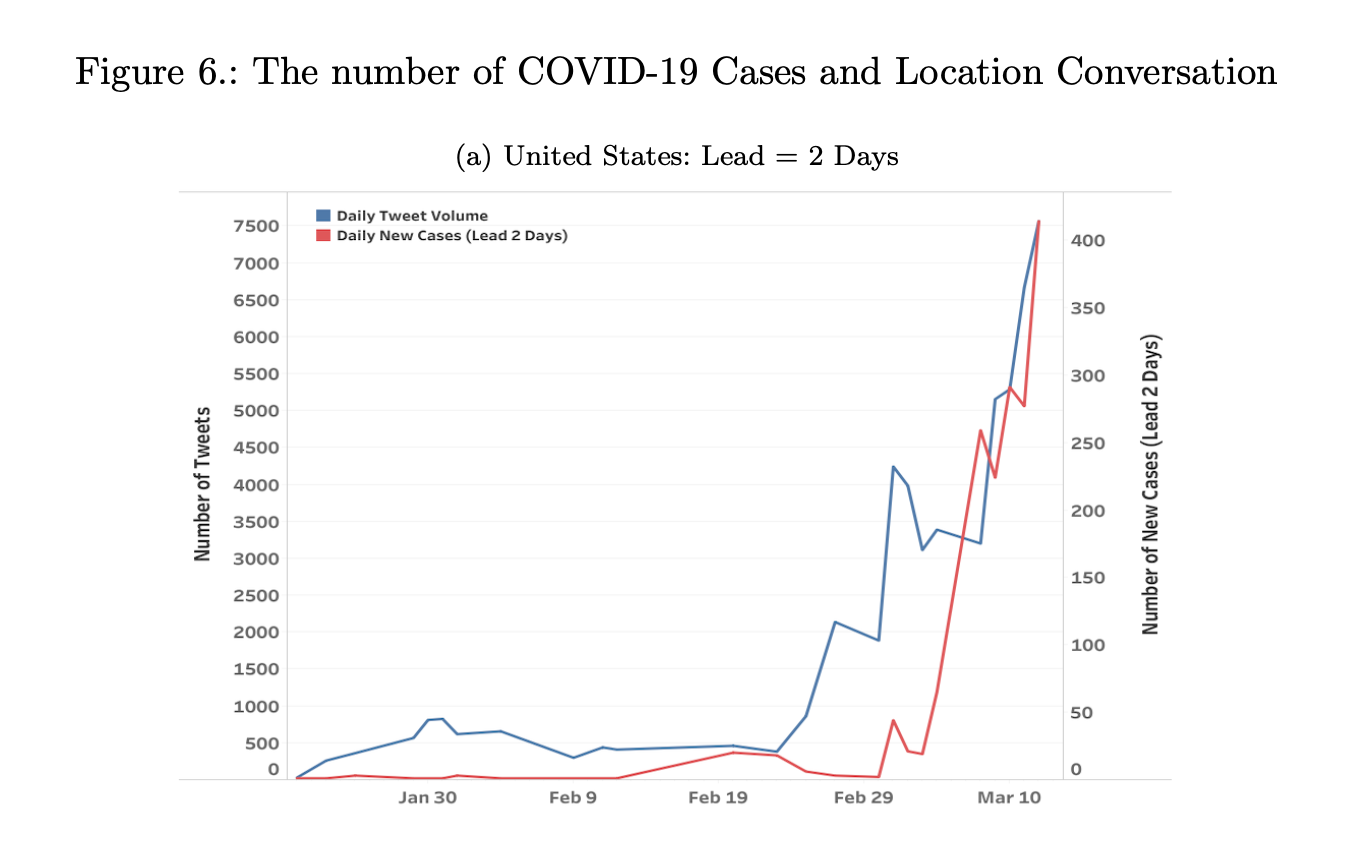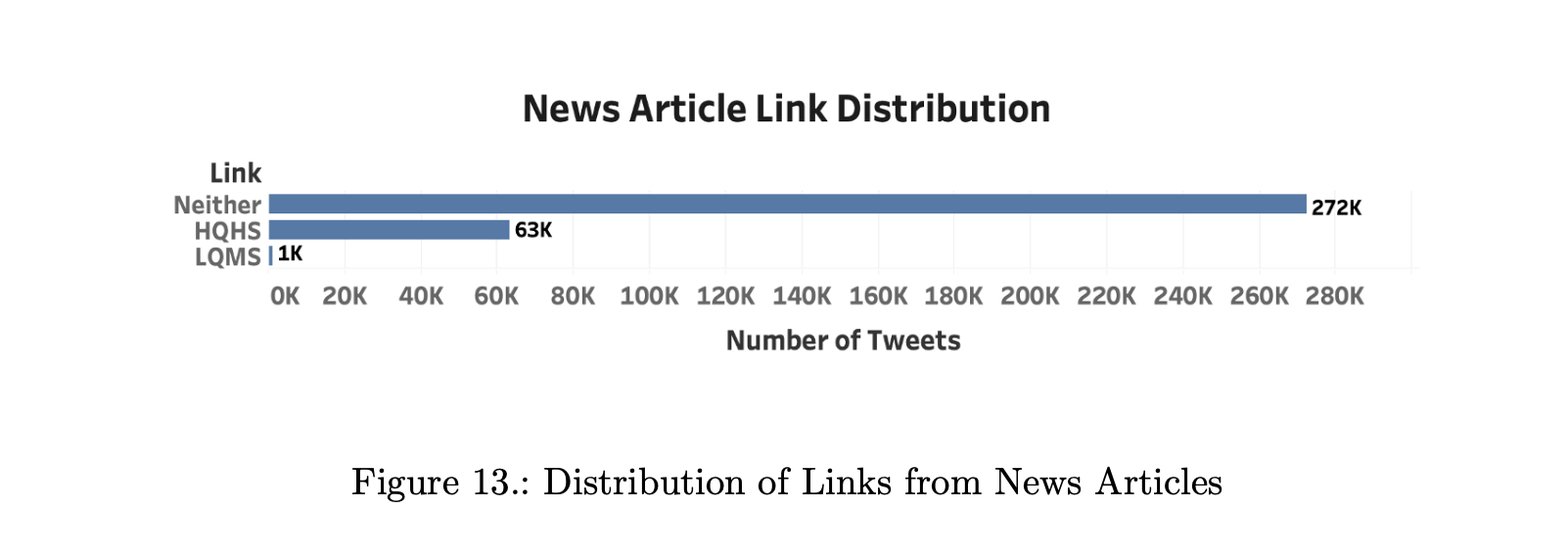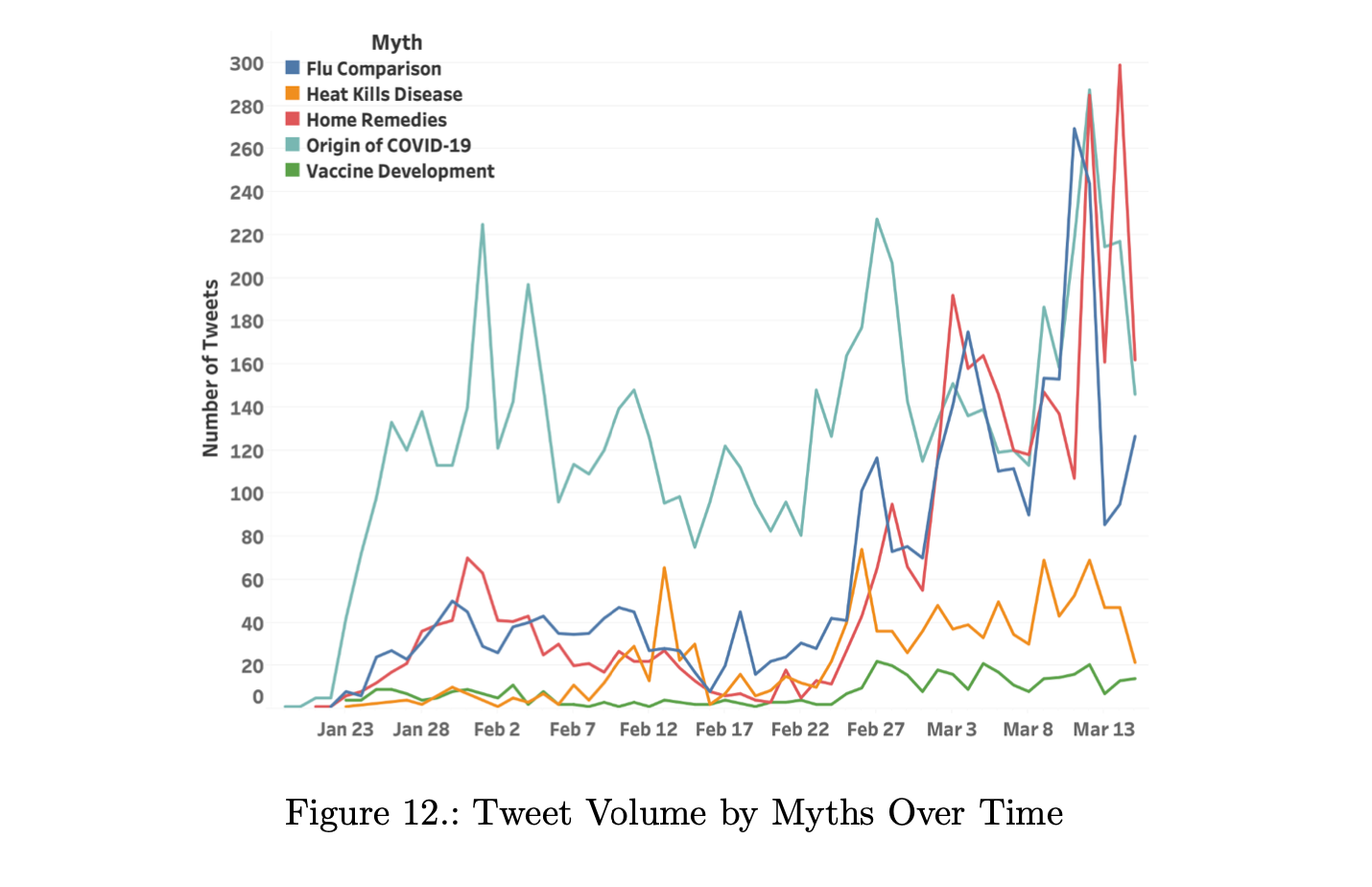Twitter and COVID-19: Preliminary Study Finds Information and Misinformation Equally Shared

Sharing of credible health information on Twitter about COVID-19 is roughly keeping pace with sharing of misinformation on the internet, according to a new study by the McCourt School of Public Policy’s Massive Data Institute (MDI), in collaboration with three other universities.
Georgetown professors Lisa Singh (computer science), Shweta Bansal (biology) and Leticia Bode (communications, culture, and technology) were part of the team that examined COVID-19-related social media posts on Twitter to identify conversation locations, discussion themes and the volume of misinformation.
MDI working with partners at Georgetown, University of Michigan, Pennsylvania State University and the University of Minnesota, look at myths shared about the virus within posts and shared URL links to credible and less credible quality information about COVID-19 on the internet.
As people stay inside to help slow the spread of COVID-19, social media continues to be a primary tool for information sharing. The quality of information on the internet, however, varies and presents unique challenges for public health management, including the spread of health misinformation related to vaccines and global health crises.
This ongoing research is an important step toward better understanding the quality of information that people pay attention to on social media and whether it can help epidemiologists track the movement of the virus.
“We have learned a great deal about how much, where, and how people are communicating about this pandemic,” the report states. “Attention to COVID-19 continues to grow on Twitter, and likely on other platforms as well. As we know from research, people tend to care about news that affects them personally, so it makes sense that relevant conversation would grow as the pandemic continues to affect more and more people on a personal level.”
The findings are an important reminder of the role of social media during times of crisis and give preliminary support for using this open platform as a tool for understanding how people are impacted by the crisis. Read the full report and learn more about some of the findings below.
1. For some countries, information flow is about 2-5 days ahead of new cases of COVID-19.
While the conversation on Twitter is global, the chart below examines Twitter conversation and new daily cases of COVID-19 in the United States:

2. People link to high-quality news and health organizations more than sites sharing COVID-19 misinformation, but they link to both very little.
*HQHS = High Quality Health Sources and LQMS = Low-quality Misinformation Sources

3. People share some popular myths, but at lower volume than other conversations.

Study authors wrote, not surprisingly, that some tweets about the virus are not reliable. But they also note that while people are sharing many URLs – with about 40% of original tweets including a URL – people are sharing fewer URLs from credible health sources such as the CDC and the World Health Organization than expected. Only 14,485 original tweets or 0.4% shared information from those entities.
Still, the report states that sources confidently characterized as producers of misinformation by a journalism organization are also not shared in great numbers. There were 11,654 original tweets linked to unreliable sources, even though they are retweeted more often (11,415) than credible health sources (8,813).
About the Massive Data Institute:
The Massive Data Institute at Georgetown’s McCourt School of Public Policy harnesses data and computing power to produce cutting edge interdisciplinary research and improve public policy decision making.
